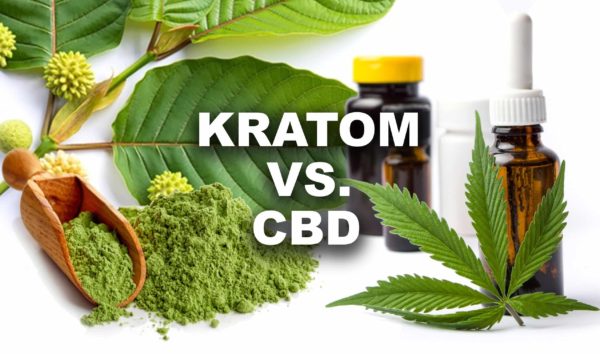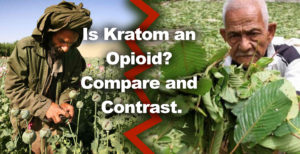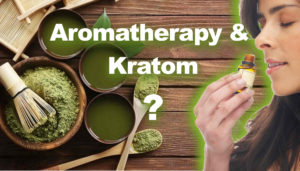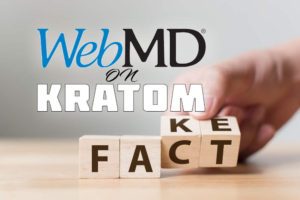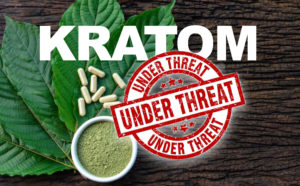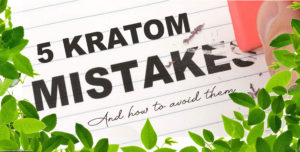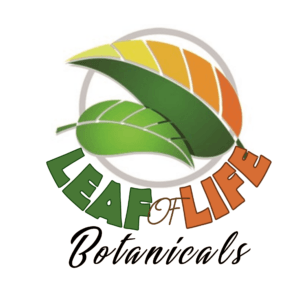The National Institutes of Health article on kratom is so full of lies, I hardly know where to begin. This organization is USA-oriented.
Let’s quote sections of it and examine the disinformation contained in it.
QUOTE
Kratom is not currently an illegal substance and has been easy to order on the internet.
END QUOTE
This is partly true. But kratom is officially banned, ie, illegal, in some places in America. While it’s true that it’s not illegal on a federal level, they conveniently leave out the fact that it is illegal in some states and cities.
I think the reason they state categorically is that “kratom is not currently an illegal substance” and refers to the ease of obtaining it – is for shock effect. They want people to think, “That’s horrible, that such a dangerous, unhelpful drug is not illegal and people can get it with no problem. What is this world coming to anyway?”
According to a company called Kraoma:
QUOTE
Below you will find the breakdown of all 50 states along with the legal status of Mitragyna speciosa there:
- Alabama– kratom is illegal in Alabama,
- Alaska– kratom is legal,
- Arizona– kratom is legal. There was a bill that proposed a kratom ban in 2014, but it was left out of the bill. Arizona enacted the Kratom Consumer Protection Act (KCPA) in late April 2019,
- Arkansas– kratom is illegal in Arkansas,
- California– kratom is legal except for the city of San Diego (but this doesn’t apply to San Diego County),
- Colorado– kratom is legal. Denver prohibits the sale of kratom products for human consumption. It is legal to sell it though as long as it isn’t for human consumption. However, Parker Town and Monument Town prohibit kratom sales.
- Connecticut– kratom is legal, and there is a pending bill to regulate it,
- Delaware– kratom is legal,
- Florida– kratom is banned in Sarasota County, but it’s legal elsewhere in Florida,
- Georgia– kratom is legal. There was a bill to ban it; however, it didn’t succeed. Moreover, Georgia was the third state to enact the Kratom Consumer Protection Act,
- Hawaii– kratom is legal, but there is a pending bill to ban it,
- Idaho– kratom is legal,
- Illinois– kratom is legal for those over the age of 18 except for Jerseyville,
- Indiana– kratom is illegal in Indiana,
- Iowa– kratom is legal. A bill to ban it didn’t succeed,
- Kansas– kratom is legal. A bill to criminalize it was removed. Now, Kansas is reviewing the KCPA,
- Kentucky– a bill to make outlaw kratom didn’t succeed, but neither did one intending to regulate it. Kratom is legal.
- Louisiana– kratom is legal. However, a bill to ban kratom if the Drug Enforcement Administration (DEA) places it on the scheduled substances list,
- Maine– a bill to ban kratom didn’t succeed, but neither did a bill to regulate it. So, it’s legal but unregulated,
- Maryland– kratom is legal, but a bill to ban primary kratom alkaloids failed./
- Massachusetts– kratom is legal.
- Michigan– kratom is legal, but there is a pending bill to include kratom among Schedule II drugs.
- Minnesota– kratom is legal.
- Mississippi– kratom is illegal in a number of counties and cities in Mississippi. A few more locations are debating whether to schedule kratom. The herb remains legal elsewhere in the state. However, there are regular efforts to ban kratom in the state,
- Missouri– kratom is legal; currently, Missouri is reviewing the KCPA, but a few counties are debating a potential kratom ban,
- Montana– kratom is legal.
- Nebraska– kratom is legal.
- Nevada– kratom is legal. Moreover, it’s regulated according to the KCPA,
- New Hampshire– a bill to criminalize kratom didn’t pass. Instead, legislators amended it to allow kratom for those over 18 years. Kratom is illegal in Franklin but remains legal in the rest of the state. New Hampshire is considering regulating kratom,
- New Jersey– kratom is legal at the moment. Nonetheless, there have been efforts to ban it,
- New Mexico– kratom is legal.
- New York– although multiple intents to ban kratom have been made, it is legal,
- North Carolin– even though a bill to ban kratom was introduced, it remains legal for those older than 18.
- North Dakota– kratom is legal.
- Ohio– kratom is legal, and the state is considering regulating kratom.
- Oklahoma– kratom is legal, but a bill to ban kratom didn’t succeed. There is a pending bill to regulate kratom,
- Oregon– Kratom is legal, and the authorities are considering regulating it,
- Pennsylvania– kratom is legal,
- Rhode Island–kratom is banned. There is a pending bill that may reverse the kratom ban and make it legal and regulated,
- South Carolina– kratom is legal,
- South Dakota– kratom is legal for those over the age of 21,
- Tennessee– kratom in plain leaf form is legal for those over 21 years. There is a pending bill that would only allow kratom to be sold by retailers and in packets of 5-7 ounces,
- Texas– kratom is legal, and there is a pending bill to regulate it.
- Utah– kratom is legal. Although there was a bill to make kratom a controlled substance, it didn’t pass. On March 26th, 2019, Utah became the first state to enact the Kratom Consumer Protection Act. Under this bill, vendors need to comply with regulations such as testing kratom before selling it.
- Vermont– kratom is banned, but a pending bill may reverse the law.
- Virginia– kratom is legal,
- Washington– kratom is legal,
- West Virginia– kratom is legal,
- Wisconsin– kratom is banned. However, Wisconsin may remove the ban and pass the KCPA instead,
- Wyoming– kratom is legal.
In addition to the 50 states, kratom is also legal in Washington D.C., the capital of our country. The authorities first banned kratom in 2016, but amended the controlled substance act and removed it in 2019.

END QUOTE
Here’s the next dubious statement in the NIH article.
QUOTE
Most people take kratom as a pill, capsule, or extract. Some people chew kratom leaves or brew the dried or powdered leaves as tea. Sometimes the leaves are smoked or eaten in food.
END QUOTE
Do you know anybody who actually tried to smoke kratom leaves? It’s a very foolish thing to try, as it is harsh on the lungs and provides nearly zero effects. Have you ever heard of someone eating kratom leaves mixed in with their food? Where do they get these wild ideas? These acts are so rare, that it makes no sense to mention them.
Now let’s continue with the NIH article.

QUOTE
Reported health effects of kratom use include:
- nausea
- itching
- sweating
- dry mouth
- constipation
- increased urination
- loss of appetite
- seizures
- hallucinations
Symptoms of psychosis have been reported in some users.
END QUOTE
Are you scared yet? These are the only “health effects” they care to mention? To be fair, the paragraph prior to this one did mention relief of pain and other good effects, but this bullet point list will attract a lot more attention, so it’s an unfair list.
Nausea? I’ve had some stomach upset from kratom on a few occasions. I even vomited it up sometimes, but again, it is very rare.
Itching? Yes, especially nose itches. But this is a rather minor downside of kratom.
Sweating? Have no idea what they’re talking about.
Dry mouth and constipation? Certainly, kratom is very dehydrating. Just drink a lot more fluids, especially water.
Increased urination? Dumbasses, that’s due to drinking more liquids to counteract the drying effect of the powder.
Loss of appetite? I have experienced the exact opposite. Kratom makes me feel happy, and I tend to eat a bit more.
Seizures? Rarely, almost never happens.
Hallucinations? Wrong. Never had any in the 5 years I’ve been using kratom.
Psychosis? Methinks they are mixed up and are talking about alcohol.

QUOTE
The FDA reports note that many of the kratom-associated deaths appeared to have resulted from adulterated products or taking kratom with other potent substances, including illicit drugs, opioids, benzodiazepines, alcohol, gabapentin, and over-the-counter medications, such as cough syrup. Also, there have been some reports of kratom packaged as dietary supplements or dietary ingredients that were laced with other compounds that caused deaths. People should check with their health care providers about the safety of mixing kratom with other medicines.
END QUOTE
This paragraph is actually not too bad as far as the facts are concerned. At least they admit that deaths from kratom occur when kratom is mixed with other drugs or alcohol.
But your “health care provider” is probably going to be biased against anything that is not coming from Big Pharma. They tend to be hateful toward anything they did not prescribe for you. Often doctors are bribed by pharmaceutical sales representatives to over-prescribe opioids and other dangerous medications. This has been documented. Look up “Sackler Opioid Crisis Purdue” for more info.

QUOTE
Does kratom have value as a medicine?
In recent years, some people have used kratom as an herbal alternative to medical treatment in attempts to control withdrawal symptoms and cravings caused by addiction to opioids or to other addictive substances such as alcohol. There is no scientific evidence that kratom is effective or safe for this purpose; further research is needed.
END QUOTE
Did you catch that? “no scientific evidence that kratom is effective or safe…”
How about hundreds, if not thousands, of years of safe and effective use of kratom by Southeast Asians, where it is grown?
Science often takes a long, long time to catch up with the values and benefits of folk remedies. For example, only recently has the medical profession discovered that the claims of aromatherapy have been proven valid.
Look how long it took for them to find out how many benefits cannabis provides. You need to do your own research on such things.

CONCLUSION
You cannot trust “authorities” or “experts” all the time. You can respect some of them, perhaps, some of the time, but not always. And “the science” changes frequently, as new studies are conducted and new anecdotal evidence of patients comes flooding in.
Kratom is portrayed as a bad thing, primarily by those who are unduly influenced by the biggest crime syndicate on Earth – Big Pharma.
https://nida.nih.gov/publications/drugfacts/kratom
Source: National Institute on Drug Abuse; National Institutes of Health; U.S. Department of Health and Human Services.



